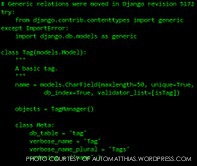
Computer programming is a process by which someone, called a programmer, writes code that computers use to run and operate. In my spare time, I do basic computer programming, so I decided to delve deeper into the difference between those who create and those who consume technology.
Some pros of learning how to program (being a creator) include being able to create technology that people will use every day, being able to fix problems with said technology and making money by creating applications and programs.
Once the problem has been discovered, it is a simple matter of solving it using the skills you have honed by countless hours of practice at programming. This ability to fix your own technology will save you lots of money, something every high school student loves to do. For example, while at my father’s house I use an older Mac.
One day, I found that the ownership of the Mac had been changed, and I was unable to remember the password in order to download programs. In order to fix this problem, I had to go into Terminal, which is essentially a command prompt for Macs. Once in Terminal, I had to use programming skills I had learned in order to make another administrator account on the computer so I could change the password of the other account in order to download programs.
The main “pro” of knowing how to program is making money by creating programs and applications. For example, just look at Mark Zuckerberg, a billionaire, who began programming during middle school. What Zuckerberg is most famous for, however, is Facebook, a social network coded in PHP, a scripting language mostly used for web page development. PHP is not hard to learn, and there are many tutorials easily accessible on the web.
Creating applications is much harder than simply making programs that display text, as applications are only really programmed in “Java” or “C/C++”, both of which take more time and effort to learn. These applications can then be sold to make money, which can then be used to buy better tools to make even better programs. For example, look at the new application “Draw Something.” While this application probably took a while to code, the company that made it, OMGPOP, was bought by Zynga, another company, for $250 million dollars!
Going back to Zuckerberg, it becomes immediately obvious that he made most, if not all, of his money from programming. During Zuckerberg’s high school years, for example, he coded a program similar to Pandora called Synapse that would learn your listening habits. Both AOL and Microsoft tried to buy Synapse, but it was instead put on slashdot and is currently available to be downloaded for free.
While some program to make money, other creators program simply to do or make anything no a computer. I interviewed some other creators in an effort to discover their specific reasons for creating instead of simply consuming technology.
Nick Cates, freshman, said that he programs because he “can make anything, do anything, on a computer, and it’s all original.” This creativity and originality is key to success in programming, and without an imagination and a sense of creativity, many applications and programs would not be around today. Humans want innovation and evolution, hence the need for always bigger and better programs and applications.
In order to receive another opinion on the matter, I interviewed Austin Crismore, junior. Crismore said that pros of programming in high school is that “the code and how to use it are explained very well [in computer science classes], and programming also provides a foundation for a future career.” When asked why he enjoyed programming, Crismore said, “I like computers.”
Programming is a great skill for high school students to learn, as it is both useful for troubleshooting and fixing your own electronics, saving money. Programmers also make a lot of money, providing someone with programming experience a great life. Finally, programming is a lot of fun and is great practice for the future.
On the other hand, there are people who simply use technology, but do not create it. These people will now be known as consumers, or “users” for short. Typically, support desks at software companies have phones almost constantly off the hook because of the sheer volume of calls–meaning some consumers who do not know how to create or solve problems waste time and money. Users also do not make money like creators do, as they do not create applications and other programs to sell for money.
While the consumers may not make money, they are the driving force behind the innovations of creators, as they [the consumers] are the people who buy the technology that creators make. Without people to buy their technology, the creators would be left with a program that no one really wants, and they would lose any and all time and resources spent making that program. Providers of technology have to look for ways to better understand the consumer, including their needs, preferences, tastes, and desires, and design their technology to fit this and future patterns of demand.
To make it even more difficult for creators, the consumers want any technology they frequent to be easy-to-use, have the ability to be personalized, and enrich their lives if they use it. Consumers will also have the need to communicate with each other and to be entertained and informed through this communication. All of these together are the real driving forces behind choice and consumption of technology.
Therefore, learning to program would be great for high school students, as it will make them a creator instead of a consumer, allowing them to make technology that people will use, and then they can sell this technology to make money.
Leave a Reply